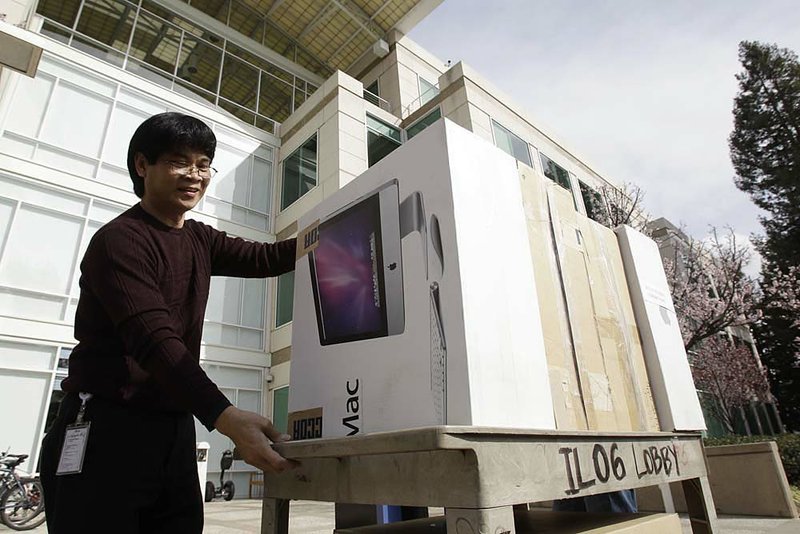LITTLE ROCK — Apple Inc. investors at the company’s annual shareholder meeting Wednesday passed a measure that would elect board members with a majority vote, rather than a plurality.
The proposal was backed by the California Public Employees’ Retirement System, the largest U.S. pension fund. Apple opposed the measure, saying it would hinder its ability to keep members on its board. The proposal hadn’t been expected to pass, Brian Marshall, an analyst at Gleacher & Co. in San Francisco, said before the meeting.
The vote signals that Apple investors want a bigger say in choosing board members. Corporate-governance advocates have complained in the past that Chief Executive Officer Steve Jobs had too much sway over directors. The close-knit nature of the board may have affected the limited disclosures about Jobs’ health, Jeffrey Sonnenfeld, a dean at Yale University’s School of Management, said last year.
Shareholders rejected a separate measure about Apple’s executive succession plan. Under that proposal, the board would be asked to disclose plans for replacing Jobs and explain how it’s nurturing the executive team under him. Jobs, who is on medical leave for the third time in the past seven years, didn’t attend the meeting.
The majority-vote measure makes it harder to elect unopposed members to the board and means shareholders have more sway in overruling the wishes of Apple management.
“The voting standard described in this proposal would provide share owners with a meaningful role in uncontested director elections, in contrast to the company’s current voting system that effectively disenfranchises share owners when directors run unopposed,” according to the statement supporting the initiative in Apple’s proxy filing.
Apple argued that board members would risk losing their seats simply because too few shareholders cast votes.
The rejected succession proposal, backed by the Laborers’ International Union of North America, was endorsed by the investor-advisory service Institutional Shareholder Services.
“Shareholders deserve to know the company has a plan in place,” Jennifer O’Dell, assistant director of corporate affairs for the union, said before the vote. “We want to know that companies are considering these issues.”
Apple opposed that measure as well, saying that revealing secret plans would aid competitors and make it harder to retain executives.
Wednesday’s meeting, held at Apple’s headquarters in Cupertino, Calif., was the first time the board was available for questioning since Jobs announced his leave of absence Jan. 17. Chief Operating Officer Tim Cook has taken over the company’s day-to-day operations since then.
The move generated a fresh wave of concern over Jobs’ health, after his cancer surgery in 2004 and a liver transplant in 2009. Jobs is credited with saving Apple from near-bankruptcy in 1997, transforming it into a consumer electronics giant and spurring its valuation to the highest level of any technology company.
Cook, 50, took over daily management during Jobs’ previous two absences. Apple’s shares climbed 67 percent during Cook’s stint as acting chief in 2009, signaling that investors were content with his leadership.
Jobs took the latest leave of absence after his health deteriorated from fighting a rare form of cancer and the effects of his liver transplant two years ago, a person with knowledge of the situation said in January. Jobs had been unable to keep on weight as he underwent treatment for his conditions, said the person, who requested anonymity because the matter is private.
Jobs, who turns 56 today, hasn’t said when he will return from medical leave.
“I love Apple so much and hope to be back as soon as I can,” he said in a note released Jan. 17 by Apple. “In the meantime, my family and I would deeply appreciate respect for our privacy.”
The laborers’ union, whose members are mostly construction workers, started pushing for companies to disclose their succession policies two years ago, O’Dell said.
“Other companies are doing it,” she said. Apple is “a leader in the industry, so they should be doing the same.”
Apple said in a regulatory filing in January that it has a succession plan in place.
Apple shares gained $4.02 to close at $342.62. The shares had climbed 5 percent this year before Wednesday.
Business, Pages 27 on 02/24/2011

